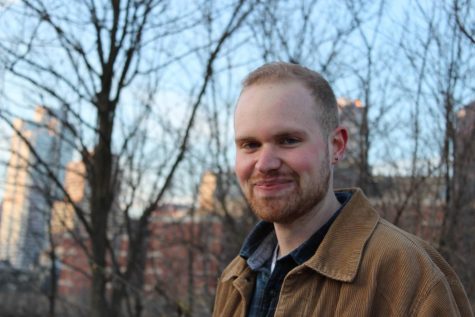Becoming more compassionate in 2020
I thought of the idea for this piece over break after several encounters with some impatient people. Namely, the barista at Starbucks greeted me, and then an older gentleman who I had not noticed off to the side exclaimed, “Excuse me, I was here first! It’s my turn.” I apologized and offered for him to go ahead, to which he begrudgingly reiterated that it was his turn.
In this instance, my dad looked over at me and joked, “OK, Boomer,” and I laughed it off as well. But it’s definitely something I’ve noticed over the course of the last decade: increasing generational rifts and fewer instances of “random acts of kindness,” let alone common courtesy. I think it is hypocritical for Baby Boomers to get angry with millenials and members of Generation Z about being self-entitled when “Karens” ask to speak to the manager if their food takes a little bit longer than expected.
I’ve worked in both foodservice and retail — they both suck — and not because the work itself is hard. Rather, some people expect you to serve them with a silver platter the instant they walk in with no real regard for how your day is going or care that the person behind them verbally abused you. I think that working in these environments has given me extra patience when I’m waiting in line and more empathy for the employees who are doing the best they can with the resources they have.
Understandably, people get frustrated when things take too long; people have professions to get to and kids to tend to. But it is not fair to transmit your dissatisfaction and your stress onto the kid just working to save up money for college.
This article is not intended to rant about baby boomers. The past decade saw an enormous number of crises, turmoil and hurt. Mass shootings, racial tensions, cyberbullying and political riots defined much of the 2010s, especially what we saw in the second half of the decade. Emotions run high, people are tense, and, generally, it feels as though people have lost trust in their neighbors.
In the era of social media, it makes sense that trust is less and less common in our everyday lives. Anyone can hide behind the mask of a pseudonym online — their intentions are completely unknown — and the distrust of online strangers seems to have been perpetuated in the real world, creating a stronger sense of “stranger danger.”
We are all so obsessed with how we are different from one another — ideology, appearance, identity and the like. We forget how we are similar. If you have a genuine conversation with someone — if you break down your preconceived biases toward the other person and actually listen — you will find that, while your problems may not be exactly the same, you both have problems. We must learn to be content with our common humanity while celebrating our differences.
I often make fun of my friend who will try to start a conversation with anyone walking around campus. It doesn’t matter if they woke up two minutes ago, are terribly hungover or are just having the worst day imaginable. He genuinely tries to create a human connection that I think, for most of us, feels uncomfortable. But, it shouldn’t have to feel uncomfortable. In an ever-connected world, we find ourselves less connected than ever. I think that has huge implications for mental health among youth and societal problems.
Rather than setting a New Year’s resolution that will flop within the next week, I charge everyone to be more compassionate in 2020. Practice empathy, kindness and compassion. Treat strangers with the respect they deserve as a fellow human. You don’t have to like everyone you come across, but in the words of the late Fred Rogers, “All of us, at some time or other, need help. Whether we’re giving or receiving help, each one of us has something valuable to bring to this world. That’s one of the things that connects us as neighbors — in our own way, each one of us is a giver and a receiver.”
Be kind in the ’20s. And not just to others — practice self-compassion, first. Take care of your mental and physical well-being when and before you are burnt-out. We will not solve any of our crises if we are constantly engrossed in self-destruction, fear and hate.

Ethan Woodfill is a senior from Pittsburgh, Pennsylvania. He is an Environmental Science & Sustainability and Political Science double major with an...



Beth Ryan • Jan 28, 2020 at 12:50 pm
This Boomer thinks you’re spot on and grateful for the reminder that you never know what kind of day a person is having or what obstacles they are overcoming.